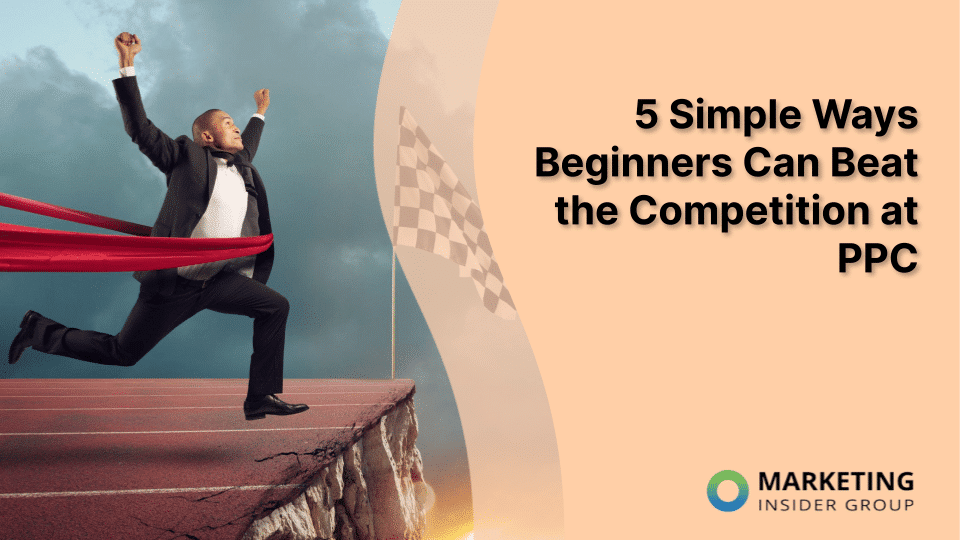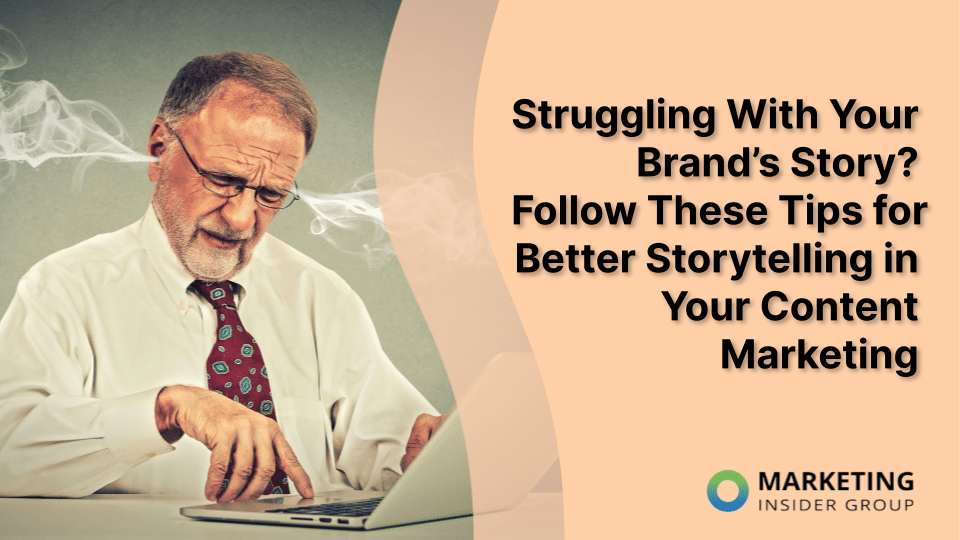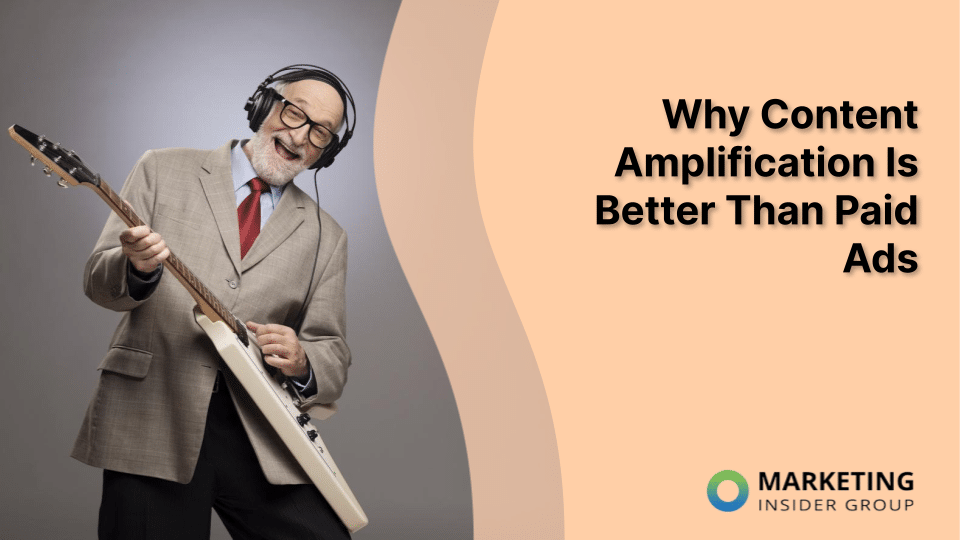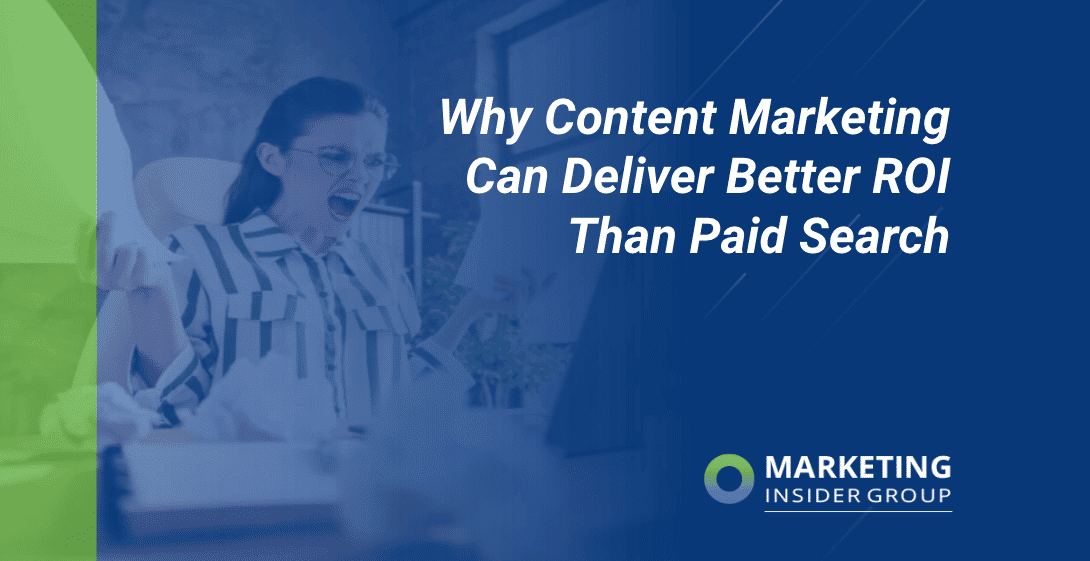
Content Marketing Vs. PPC: What Delivers Better ROI?
There are so many directions in which you can take your marketing strategy these days, it can make you dizzy.
SEO, PPC, email, social… the list goes on! Of course, most brands will choose a combination of several of these methods.
But what if you only have a limited to spend like most startups? I’m going to show you how I know that content marketing is better than PPC at delivering ROI and why you should focus your limited budget on your content marketing strategy.
Now listen, we’re going to use data to back this up. But I also need to make one thing clear: while I truly believe most digital display / banner ad spend is a waste of money, the most effective use of your budget is through a combination of content marketing and paid outbound.
Quick Takeaways:
- When implemented properly, content marketing offers a higher ROI than PPC in the long-term.
- PPC marketing can burn through a lot of cash before you figure out how to achieve ROI.
- Paid search and other types of advertising have their place but it’s essential to have a solid content marketing strategy to balance them out.
What Is PPC Marketing?
But first, let’s recap what exactly I’m talking about when I say “PPC”. PPC stands for “pay per click,” is also known as “paid search” and is technically a form of advertising. PPC ads show up on top of “organic search” results on your search engine.
When you launch a PPC marketing campaign, you’ll place ads on a search platform like Google or Bing (this is also known as paid search marketing), on a social network such as Facebook or Twitter, or on other ad platforms.
Rather than paying upfront to place your ad for a set amount of time, you’ll pay the ad platform when your ad is clicked.
In most cases, there are many more advertisers than there are ad spots. The platform decides which ads to show by using a bidding procedure. The advertiser that has bid the highest amount for a particular search query or audience will get the best ad placement. However, they’ll also pay more when someone clicks through to their site.
What Is Content Marketing?
Content marketing is a strategy that revolves around using content (blog posts, videos, podcasts, etc.) to attract relevant visitors to your website, raise awareness of your brand, and boost sales and conversions.
Rather than being sales-focused like an ad, in most cases, this content doesn’t directly pitch your products and services. Instead, you provide useful, entertaining, or inspiring content that improves the lives of your audience in some way.
Publishing a blog is one of the most common types of content marketing and one that’s easy for anyone to start, whether they’re an individual on a shoestring budget or a large enterprise.
1. Content Marketing Is Significantly Cheaper in the Long Term
When comparing different digital marketing strategies, PPC is right up there with some of the most expensive.
PPC can get you to the top of Google if you’re willing to pay for it. But you’ll have to keep paying to stay there.
These costs can add up quickly, especially in competitive industries where keywords can go for several dollars a click.
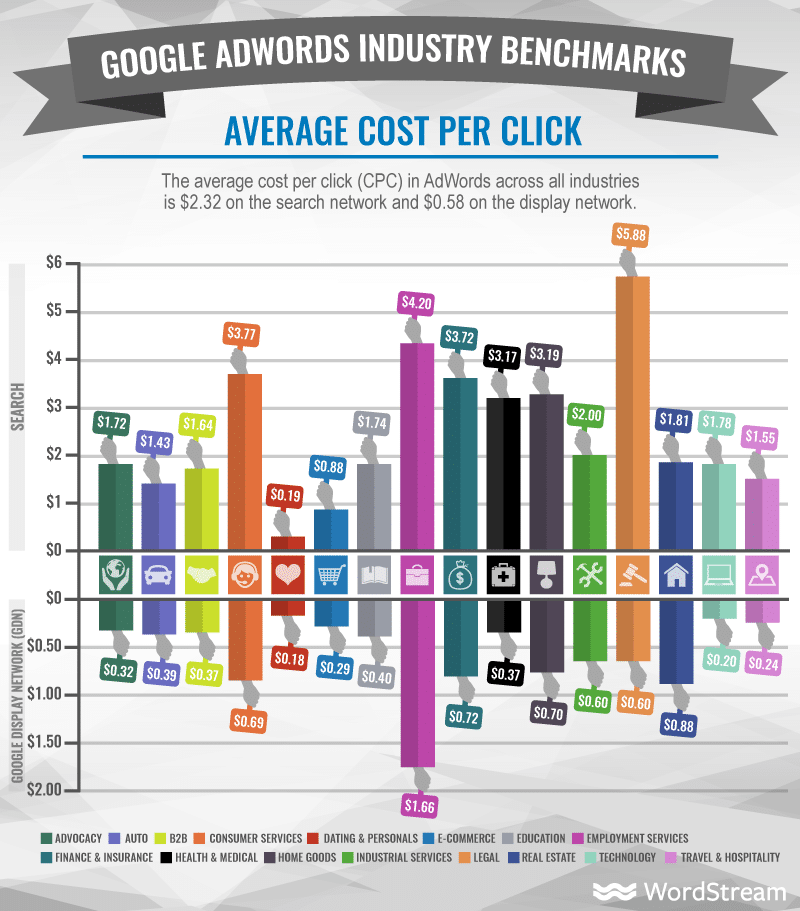
On the other hand, content marketing needs only a modest initial investment to get you started. If you’re really running on a tight budget, you can create content yourself with the only cost being your time.
With time and effort, high-quality content can reach the top of search engine results naturally. This means you can be getting those clicks for free instead of paying for each one. And you won’t lose your rankings until someone creates better or more relevant content than you.
And the most recent indusrty research finds that content marketing gets three times the leads per dollar spent compared to paid search.
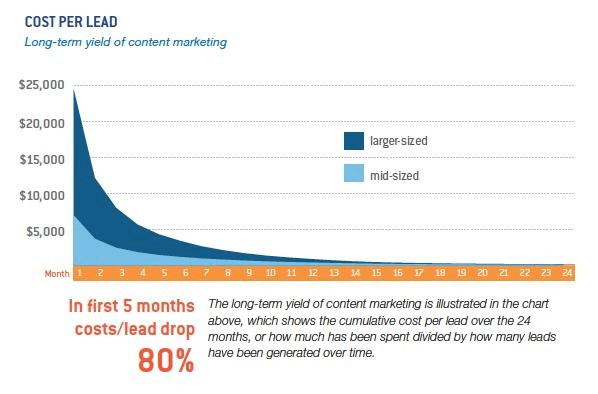
The ROI of content marketing and PPC has too many variables to suggest an “average” for each method, even on a per industry basis. But whatever industry you’re in, while PPC may seem to offer a more attractive ROI initially, content marketing almost always offers a better ROI in the long-term.
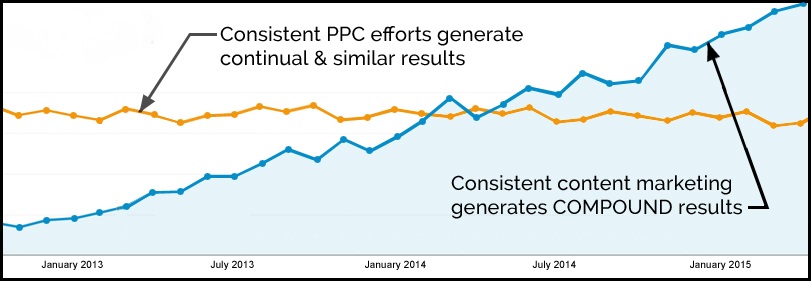
2. Content Marketing Attracts Better Quality Leads
Content marketing not only attracts more leads for your money, but it generates better quality leads too.
Lead quality is critical for optimizing ROI and increasing revenue. There’s no point in paying for leads (via any method) if they’re not converting.
One of the biggest complaints coming from sales teams is that the leads they get from marketing are low-quality ones. This situation can easily happen when sales and marketing aren’t in alignment and only care about their immediate targets. 55% of sales reps surveyed by Demand Gen said that what they want most from marketing is “better leads”.
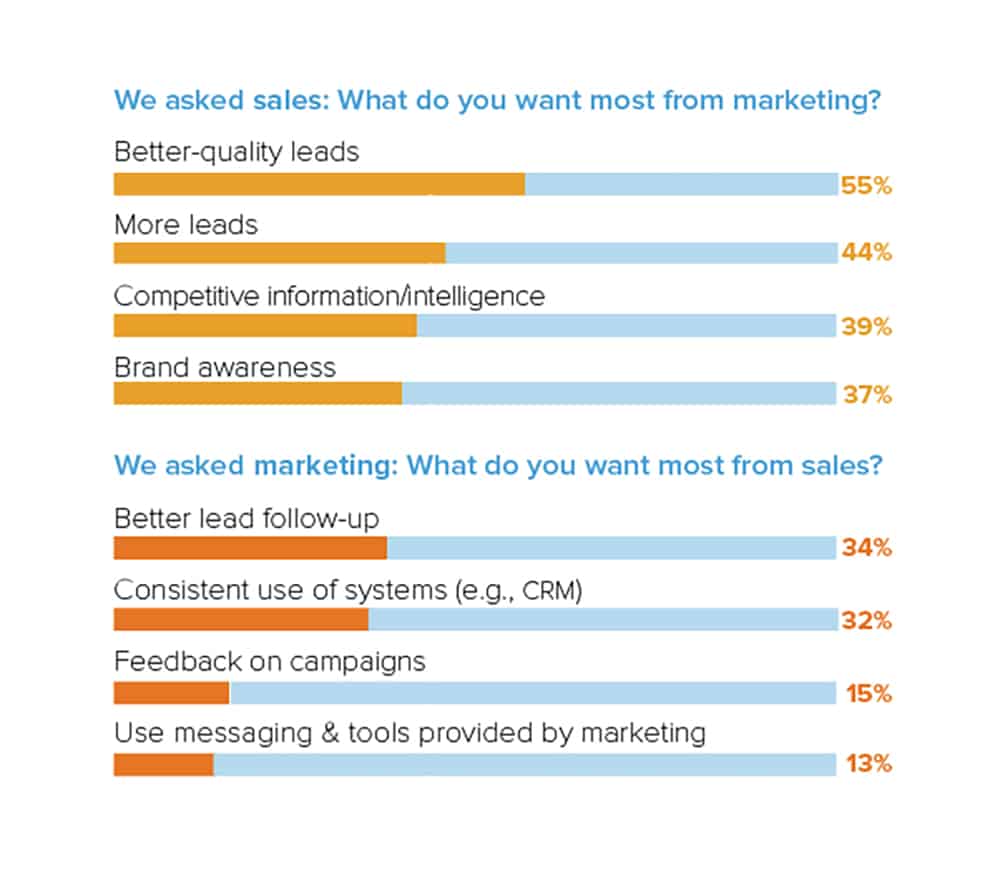
Producing high-quality content is one of the most effective ways of attracting high-quality sales leads.
Just because you’re paying for leads, it doesn’t mean they’re great quality. A lot of the time leads from PPC are poor because they don’t know your brand or understand your product when they click your ad.
On the other hand, leads generated by content have already been introduced to your brand and educated on some level. And the longer they stick around and keep consuming your content, the better these leads become.
3. Content Marketing Generates Long-term Results
Content marketing programs must be planned on a much longer timescale than other marketing techniques (we plan for a whole year!)
While we allow for flexibility throughout the year, the trends and queries in your industry are likely not going to change that much. And your competitive gap is more likely to be closed or overtaken with a consistent approach.
Content marketing builds traffic and rankings that you own. This may happen very gradually, but once you start seeing the results you want, you’re not going to lose them overnight.
The time and money you invest in content marketing now will continue paying dividends well into the future. A single piece of content that might have cost you a couple of hundred dollars to produce could end up generating the magic of compounding results: business and leads worth tens or hundreds of thousands of dollars for years to come.
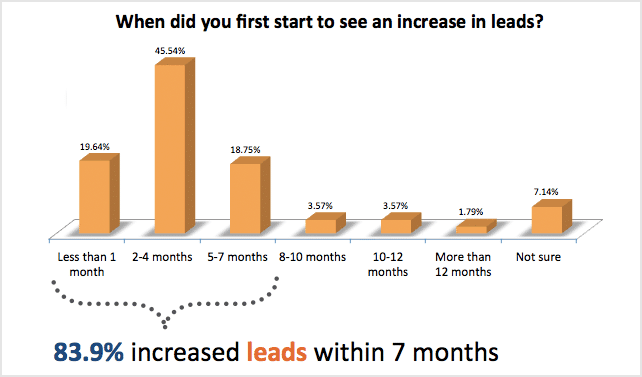
PPC, on the other hand, is most definitely a short-term strategy. You’ll see the results immediately but if you want to keep having success, you’ll need to keep going.
Anyone can buy clicks, but the value drops to zero once you stop.
4. Content Marketing Is a Simple Model That’s Hard to Mess Up
There’s a real art and science to successful PPC marketing. Not only do you have to know what keywords to bid on, but you also need to bid the right amount, optimize your ads for a high click-through rate, and craft your landing pages carefully to get the results you want.
PPC can be very effective when done well, but in most cases, you’ll have to invest a significant amount of cash before you can see results. If managed properly, PPC can be a good investment but you need a decent budget to get started.
For this reason, it’s sheer madness to attempt a PPC campaign unless you know what you’re doing. If you get lucky then you might see results, but more often than not, you’ll burn through a significant amount of money and have no results to show for it.
As PPC is so complicated, with many moving pieces, most brands using PPC marketing will either employ an in-house expert or outsource to a marketing agency specializing in PPC. Of course, this adds more expense to an already pricey marketing model.
Content marketing, on the other hand, is about as simple as you can get. While there’s certainly a lot to think about when you’re putting together a content marketing campaign, you can’t really get anything “wrong”.
In the worst-case scenario, you’ll publish some content that doesn’t really do anything for you. But all you’ll have lost is the time it took you to create that content or what you paid for it (and content marketing is very affordable compared to other types of marketing, remember).
I’ve seen organizations achieve impressive success with content marketing without following any real plan or tracking results, which just goes to show how simple it is. Those who regularly publish high-quality content and consistently deliver value will be rewarded for their efforts eventually, even if they don’t get all the fine details perfect.
5. People Trust Content More Than Ads
Google is constantly changing the way in which paid ads are displayed in the search results to try and make them blend in more seamlessly with the organic results. The reason for this is that most of the time, searchers don’t want to click on ads.
Most web users these days know that companies have paid to appear in the ads at the top of the search results, whereas web pages that are listed at the top of the organic results are there because they’ve earned it with a great reputation and high-quality information.
Research by Nielsen has found that 53% of consumers don’t trust ads listed in search engine results and 52% don’t trust ads on social media.
Trust in advertising, in general, has been gradually declining in recent years, with customers preferring to do their own research and more likely to follow recommendations from their peers than brand ads.
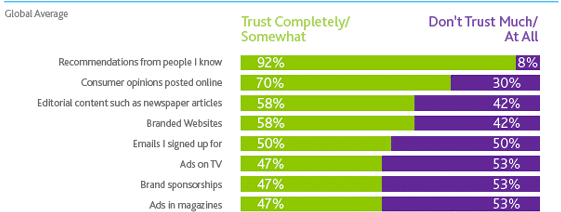
Content marketing isn’t advertising. It’s a great way to build trust rather than erode it.
5. You Can’t Succeed in PPC without Also Investing in Content Marketing
So let’s say you do have the budget to inject into running a PPC campaign and you’re working with an agency that really knows what they’re doing.
You still won’t get the best results unless you also concentrate on creating really great content.
Just think about it – even if you’ve got a really well-written ad and your targeting is spot on, you still have to win over the users that click on the ad.
So that comes down to sales copy, right? Well, yes and no. It’s certainly important to have really well-crafted and optimized landing pages. But your success will be limited unless you’ve also thought about your content marketing strategy.
You might get some sales from users who’ve never heard of your company before and end up on your landing page. But you can greatly increase your chances if you’ve got a library of great content to back you up.
Great content gets shared and comes up frequently in search results. So, if you’ve been doing your job with content marketing well, there’s a good chance that the user who sees your ad and clicks through to your landing page might have seen one of your articles or videos while researching or on their social feeds. When they keep seeing great content from your brand, they’ll remember it and you’ve got a much better chance of making that sale.
While PPC might be great for attracting people to your funnel, you still have to get them through the funnel. And websites that have adopted content marketing convert at a rate that’s six times higher than those that haven’t.
PPC ads can convert well for users who are ready to buy. But for the rest? A report by Gleanster Research revealed that only 25% of your leads are ready to buy at any given time. So what do the other 75% want?
They want to find out more about your company and products or services. They maybe don’t even know yet that they have a need for your products and services. By publishing high-value informational content that addresses their challenges, you can ensure that they stick around for longer. You have a much better chance of making that sale when they’re finally ready to buy.
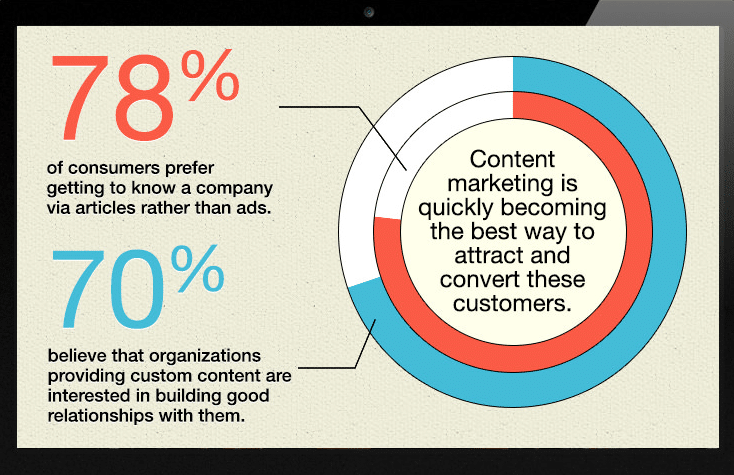
Ready to Start Focusing on Content Marketing?
PPC can still be an effective part of your overall marketing strategy when planned carefully. But it must be used in combination with content marketing if you want to achieve the best results.
Content marketing is a low-cost marketing technique that offers an impressive ROI if you’re willing to stick with it for the long-term.
If you are ready to get more traffic to your site with quality content published consistently, check out our Content Builder Service. Get started today–and generate more traffic and leads for your business.

